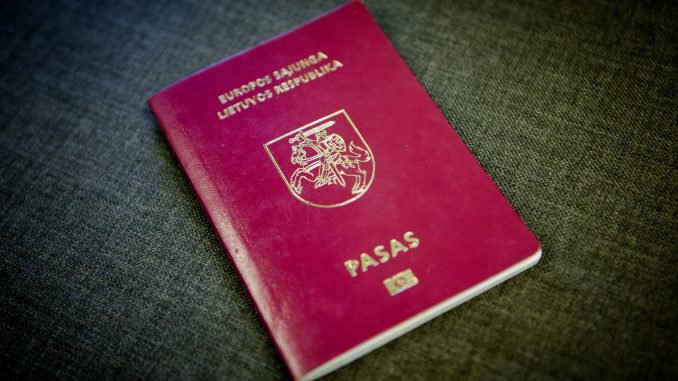
Under the ruling, the Migration Board of the Vilnius police was authorized to issue a passport to a son of a French-Lithuanian parents by spelling his last name Jaquet in Lithuanian letters and the original version. The verdict is final and not subject to appeals.
The court of lower instance had ruled that the last name should only be included in the original version, Jaquet.
The Supreme Administrative Court took into account the practice of the European Court of Human Rights and the European Court of Justice, noting that the lawful expectations of having the last name Jaquet should be met. The decision is also based on the Constitutional Court‘s ruling that personal names should only been spelled in passports in Lithuanian characters, which is in line with the Organic Law. The administrative court also based its ruling of the 2009 finding of the Constitutional Court, which said that legal acts do not ban entering names in non-Lithuanian characters among other entries.
In light of the arguments, the court stated that the court of first instance did not fully apply and interpret the legal acts.
Evelina Baliko, the head of the public establishment European Foundation of Human Rights who represented the family, said the family is not satisfied with the ruling, which does not specify the technical implementation of the finding.
She said the court’s argumentation make sense and note lack of laws regulating spelling of last names in personal documents.
The legal acts currently in effect in Lithuania only allow Lithuanian characters in the spelling of first and last names of Lithuanian citizens in documents. The issue of name spelling is often raised by Poles living in Lithuania and Warsaw politicians.
Lithuania’s parliament is considering two alternative projects, including one allowing Latin characters x, w and q in personal documents, while the other allowing the original spelling on additional pages of the passport. A similar proposal to allow non-Lithuanian characters on the additional page only and the reverse side of the personal identity card has been submitted to the parliament by a steering group, which collected signatures of 50,000 citizens.

Be the first to comment